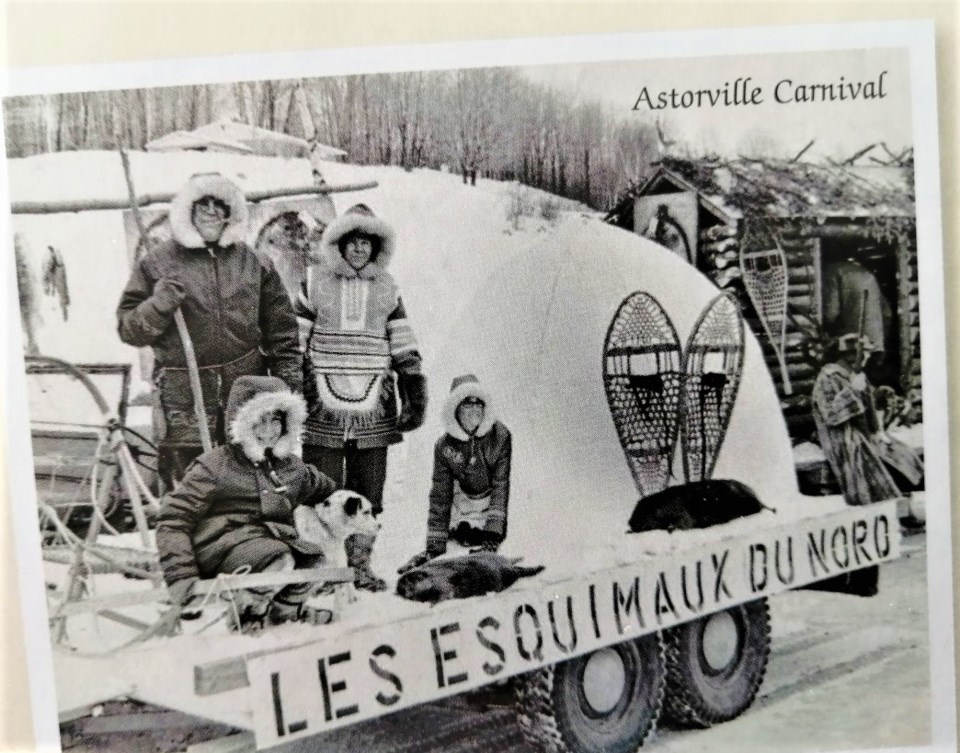East Ferris residents are invited to submit questions for a virtual open house over Algonquin Treaty settlement proposals February 4.
Recent presentations to council outlined opposition to several Crown land parcels being included for subdivision development while complaining their voices are not being heard in the process.
Jason Trottier, chief administrative officer, said questions can be received at the township office until noon Monday so the provincial representatives can better prepare.
Two Ministry of Natural Resources and Forestry staffers from their treaty division will be available for the Zoom meeting, he said, which will be live-streamed via the municipal YouTube channel next Thursday noon to 1:30 p.m.
The contentious issue was discussed Tuesday evening as Coun. Erika Lougheed suggested a better understanding of the historical context would also help.
At the January 12 meeting, Lougheed noted the “irony” of residents and councillors bemoaning lack of consultations from their own government when that’s what Indigenous people experienced as East Ferris came into existence.
“When I hear things said such as ‘that was a hundred years ago’ or ‘it’s time to move on’ or ‘we’ll fight’, I am reminded that we are currently ill-equipped to partake in these important conversations,” she said.
Lougheed was referencing words used in statements by presenters as well as councillors Terry Kelly and Steven Trahan.
Trahan, who noted he is ‘status Algonquin’ and has been involved in Indigenous culture training similar to what she was suggesting for council, asked Lougheed if she was accusing them of doing something wrong.
She said “we could do better.”
Trahan had agreed with what resident Todd Wilcox presented on Feb. 12 on behalf of Shirley Ferron, Chris Holmes, and other MacPherson Drive residents.
Trahan said the proposed 47-lot Algonquin Nation subdivision earmarked for 1,146 acres east of Stepping Stones Lane is “their plan…not East Ferris’ plan.” He agreed MacPherson Drive was not made for that kind of traffic “and if we have to fight we’ll fight.”
MacPherson Drive residents are already concerned about road safety with a 25-lot subdivision plan approved by council west of One Mile Road. And applications, while recently withdrawn, proposed to redesignate 7.15 acres from agricultural to land for economic development by a light industrial manufacturer.
Kelly said she may have misunderstood the context of the statements, which he said were about the process the province took in the negotiations and not against the Algonquin people’s long-standing land claim.
Kelly said he’s being involved in the land claim process for almost 15 years and said it’s been flawed from the beginning.
“This is not consultation,” he said, describing the provincial attitude as: “Here’s what we’re going to do whether you like it or don’t like it.”
Kelly said the province should have offered money instead of land that impacts landowners and taxpayers, while adding that most of Algonquins are already “amalgamated into society as we know it.”
He said Trahan is a “great representative” and noted that one of the Algonquin chiefs was a building inspector in Mattawa.
“They are part of our society … they are not in need of housing as far as I know,” he said. On January 12, he suggested the interest on a $700 million to $1 billion trust would be enough to buy everyone in the Golden Lake band a new home.
In reaction to Lougheed’s comment about the irony of the situation, Wilcox said: “I don’t believe two wrongs make a right … times have changed, we can’t solve problems going back 100 years, we have to move forward.”
See Todd Wilcox's presentation HERE
See Trout Lake Conservation Association letter HERE
He said “destroying the park” of walking paths created between the Stepping Stones and Johnson Road (where another 17-lot subdivision is slated to go) is the wrong answer.
“Developing a park, how the heck does that solve any historical problem?” he said about acreage that was supposed to be protected through the 1999 Lands for Life planning initiative for its “historical, ecological, environmental and recreational value of this area for future generations.”
See Lougheed's letter HERE and see the East Ferris YouTube recording of the proceedings HERE
(See the bottom of the story for an audio clip of discussion between councillors Trahan, Kelly and Lougheed.)
Lougheed also pointed to the archive photo of the Astorville winter carnival on the February 2021 page in the East Ferris community calendar as an example of the perspective gap. She said the ‘Les Esquimaux du nord’ float, with participants dressed in Indigenous clothes, is an example of “cultural appropriation” not being recognized in present-day application.
Mayor Pauline Rochefort began the meeting Tuesday by noting Lougheed’s three-page letter to council suggesting how they can improve their perspective. Rochefort said it was her that brought that photograph to the Centennial Celebration committee.
“It was used to showcase the times and events of our lives but obviously in no way did we intend to disrespect the culture of Indigenous people and regret any harm this may have caused,” she said, thanking Lougheed for educating them about cultural appropriation. Rochefort also liked Lougheed's idea to study the historical record of Indigenous people of the area in relation to East Ferris, suggesting their may be funding available through Truth and Reconciliation programs that may assist hiring researchers as suggested.
Dave Dale is a Local Journalism Reporter with BayToday.ca. LJI is funded by the Government of Canada.
